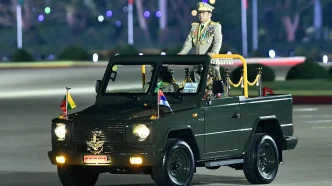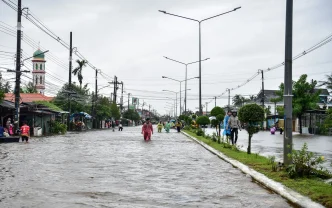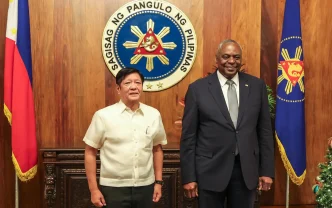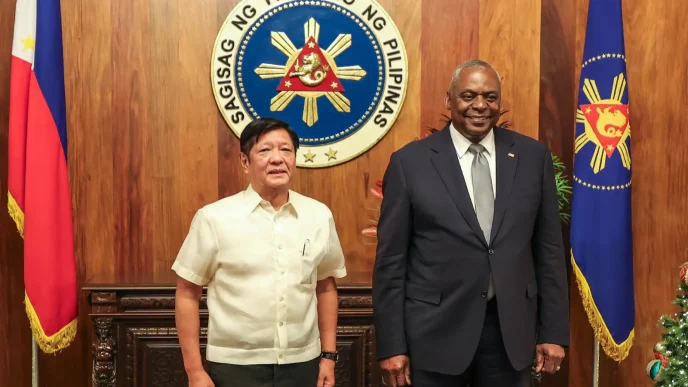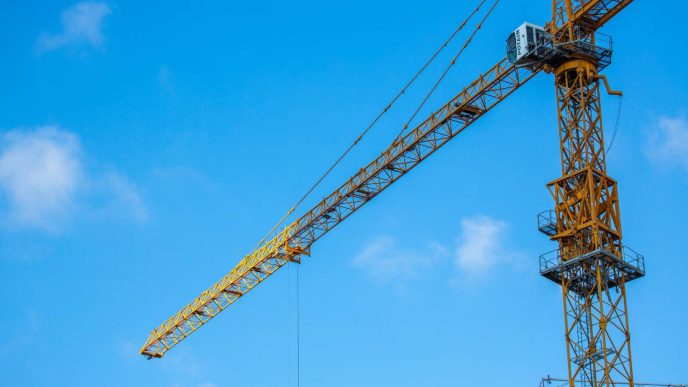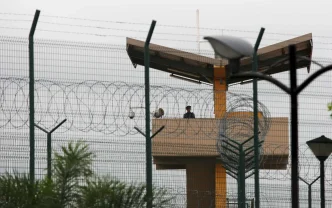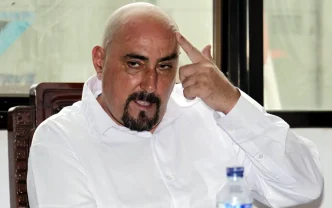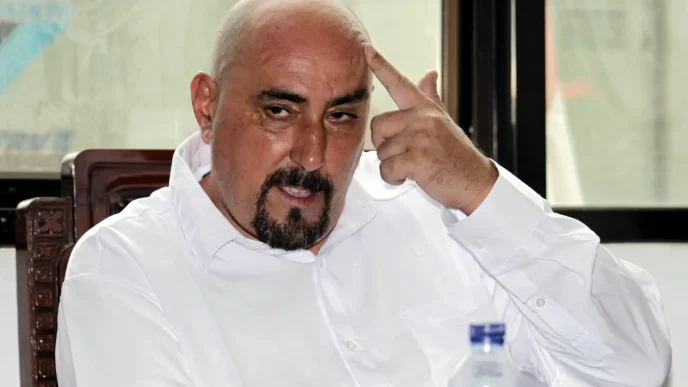Myanmar’s military junta chief Min Aung Hlaing arrives to deliver a speech on armed forces’ day in Naypyidaw, in this file photo. (AFP pic)
THE HAGUE: The prosecutor of the International Criminal Court (ICC) is seeking an arrest warrant for Myanmar’s leader and military chief Min Aung Hlaing for crimes against humanity in the alleged persecution of the Rohingya, the world’s largest stateless population.
Below are some facts about Min Aung Hlaing, his alleged crimes and reaction.
Atrocities alleged
More than 730,000 Rohingya fled Myanmar to Bangladesh to escape a military offensive in August 2017 while Min Aung Hlaing was military chief under a civilian-led government. UN investigators described the campaign as a “textbook example of ethnic cleansing”, citing widespread atrocities including mass killings, sexual violence, and the destruction of villages.
Myanmar’s government at the time denied the allegations, saying security forces carried out legitimate operations against militants.
More than 1 million Rohingya have fled Myanmar’s Rakhine State since the crackdown, the ICC says, mostly to Bangladesh, to live in squalor in what is the world’s largest refugee camp. Thousands each year embark on dangerous journeys on rickety boats to try to reach Muslim-majority Malaysia and Indonesia.
Their situation in Rakhine State remains precarious, with the Rohingya caught up in a civil war that has raged across Myanmar in the wake of Min Aung Hlaing’s 2021 coup, as the military battles the rebel Arakan Army.
A panel of three ICC judges must decide if they agree there are “reasonable grounds” to believe the general, who is now president and prime minister, bears criminal responsibility for the deportation and persecution of Rohingya in Myanmar and Bangladesh.
Limited travel
Myanmar’s junta in a statement to Reuters said the country was not a member of the court and does not recognise its statements. A similar statement later appeared also in local media and pro-military social media.
The junta’s mouthpiece newspaper, the Global New Light of Myanmar, made no mention of the ICC prosecutor’s move but carried a front-page article on Min Aung Hlaing’s meeting with the national finance commission to discuss the economy.
His movements within Myanmar have been limited and unannounced, as fighting escalates and rebels capture more towns from junta control.
The most likely way any possible arrest warrant could be served would be overseas, but Min Aung Hlaing, 68, rarely travels abroad. As Myanmar’s leader he has visited mainly the country’s closest allies, with three trips to Russia and one to China for a sub-regional summit.
He went to Indonesia in April 2021, two months after the coup, for an emergency meeting of Asean leaders to address the bloody crisis unfolding in Myanmar.
The bloc came up with a five-step plan to end hostilities. Min Aung Hlaing told leaders he would give “careful consideration to constructive suggestions”. Myanmar has since been barred from Asean’s summits for failing to follow the plan.
The general visited Russia, a key supplier of arms to his military, three times within the first two years of the coup.
His most recent trip abroad was in November, to China for a summit, where he met leaders of Cambodia and Thailand, and China’s premier, who pledged support for his plan for an election in Myanmar next year and called for an end to fighting at their border.
David Mathieson, an independent analyst who tracks developments in Myanmar, said an arrest warrant would have “minimal impact”, as the countries the general typically visits are not ICC members.
Reaction
Agnes Callamard, Amnesty International secretary-general, said Min Aung Hlaing has been “at the centre of multiple human right catastrophes” and the seeking of an arrest warrant was a decisive step.
“The cycle of impunity in Myanmar has to be broken now,” she said in a statement.
The special advisory council for Myanmar, a group of independent experts, said the ICC prosecutor’s announcement could not be timelier.
“Impunity for perpetrators of the most serious crimes under international law in Myanmar still prevails. This impunity continues to fuel devastating violence,” it said.
Duwa Lashi La, acting president of Myanmar’s shadow national unity government, said he celebrated the announcement.
“It confirms what Myanmar’s people, particularly the Rohingya, have long known… Now accountability must follow,” he said on X.
China’s foreign ministry said the ICC must be “just and fair” and exercise its duty “prudently”.
